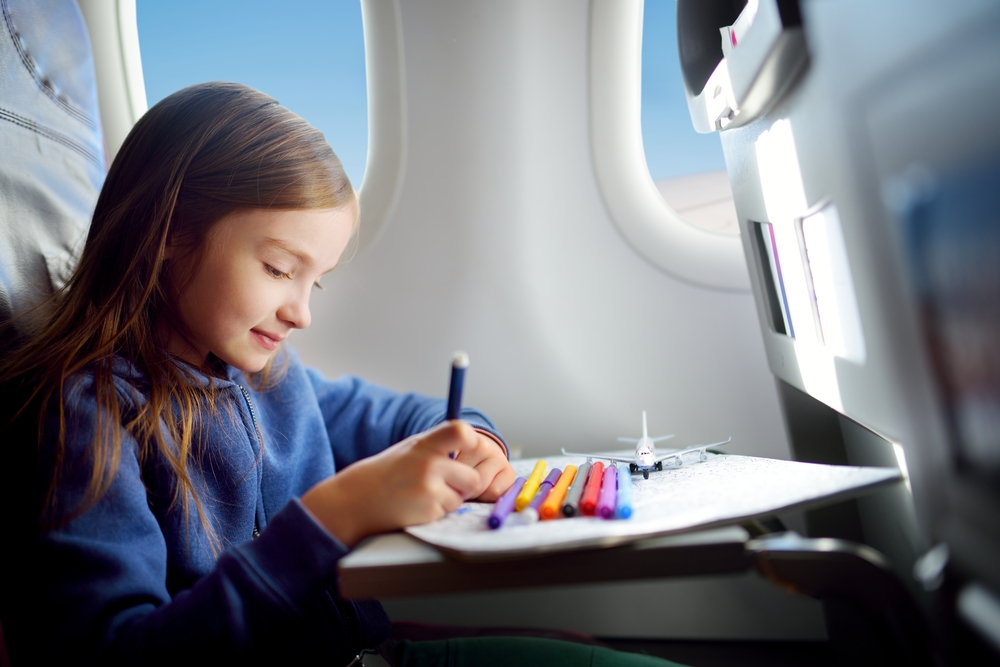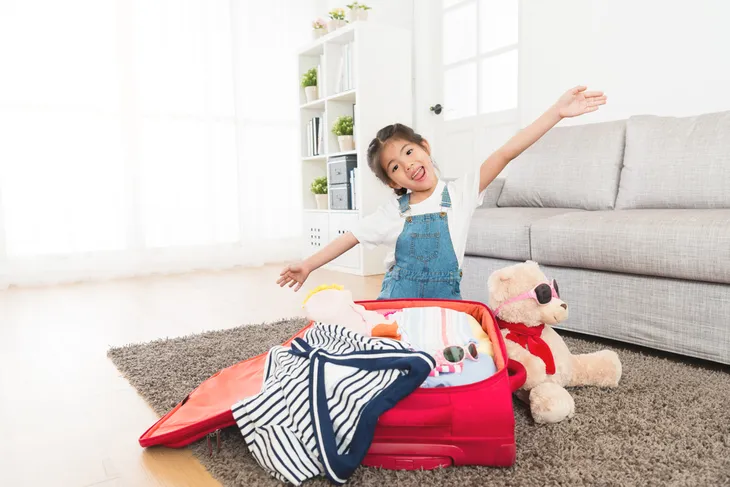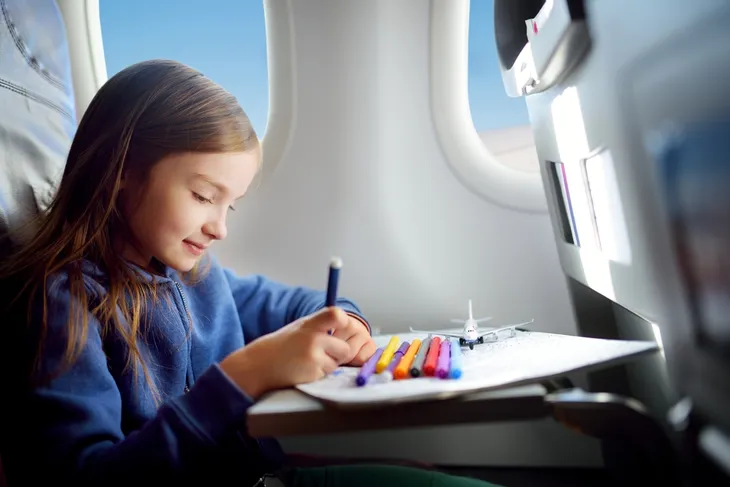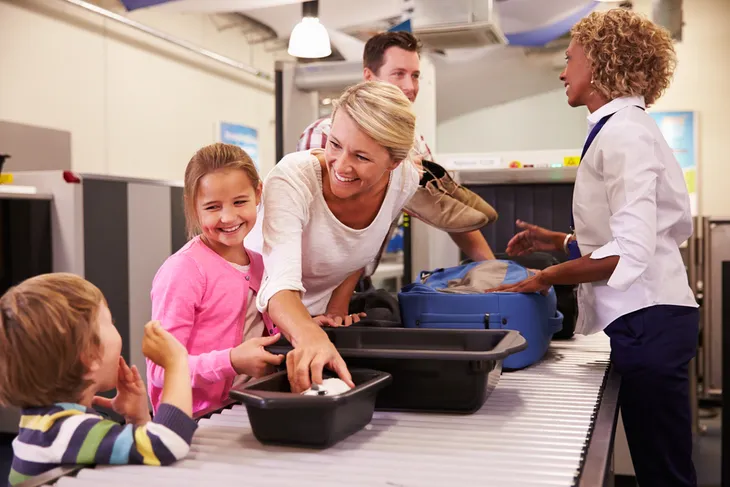- Traveling can be fun for the whole family but it can also have challenging moments.
- Families with ADHD may face even more challenges but it doesn’t mean vacation can’t be enjoyable. It just requires a bit more planning.
- Knowing your child’s needs and planning accordingly can help ensure travel goes smoothly for the whole family.
Family vacations can be incredibly fun but they can also be challenging at times for all families, but families with special needs, including attention deficit hyperactivity disorder (ADHD), may face even more challenges. However, that doesn’t mean traveling won’t be enjoyable, it simply requires a bit more planning and preparation.
If you plan on traveling for the holidays, for a summer vacation, or for a quick weekend getaway then find comfort in knowing there are a few simple things you can do that will make your trip more fun and relaxing for the whole family. Here are 12 travel tips for children with ADHD.
Know Your Child’s Needs
Before traveling, it’s important to know your child’s needs and limits. This can help you prepare and plan a happy and healthy vacation.
According to Children and Adults with Attention Deficit/Hyperactivity Disorder (CHADD), it’s vital to know your child’s limits and how long they can maintain focus. This will help you know which activities they will enjoy and which ones may cause an outburst.
Choose the Right Destination
Picking a destination isn’t always easy. After all, there are tons of places to choose from. But it’s important to consider the needs of your child when choosing the destination.
ADDitude suggests choosing a destination that “fits your children’s interests,” if you’re not traveling to visit family that is. But make sure the place has activities that everyone will enjoy. The source says a destination with lots of outdoor “running-around opportunities” is great for kids with ADHD. Be sure to also involve the whole family in the planning process.
When deciding on activities, CHADD also suggests having a backup plan ready in case things don’t go as planned. This can include having a list of alternate restaurants and attractions on hand in the event you need to pivot your day.
Mark It on the Calendar
Once the destination has been chosen, mark it on the calendar to help your child prepare. You can also consider bringing a calendar with you while you travel. This can help your child know what’s planned for the day and how many vacation days they have left.
ADDitude also suggests giving your child their own itinerary. This should include their schedule for each day including meal times, bathroom breaks, naps, activities, and bedtime. The source says children with ADHD “do best with structure and routine.”
How to Introduce Your Child to New People
If you know your child will be meeting new people (such as extended family) during your travels then you can help them prepare. For example, if you’re staying with relatives for the holidays, ADDitude suggests printing off pictures of who you’ll be staying with. Show the photos to your child and tell stories about each individual so they feel more comfortable once they arrive.
It’s also important to prepare the relatives you’re staying with, especially if they’re not familiar with ADHD. Explaining your child’s needs and limits can help your relatives better understand your child’s behavior and it can help them know what to do if things escalate.
Set Rules and Expectations
Setting rules and expectations ahead of traveling is also important. Make it clear that their usual rules still apply while they are vacationing. Practice your coping strategies and you may even find role-playing any potential problems can be helpful too.
The Family Vacation Guide also suggests a sticker chart. If your child responds well to rewarding good behavior then this tool can help encourage good behavior while vacationing. To use this method simply create a chart and give your child a sticker every time they practice good behavior. After they collect so many stickers you can offer a reward, such as a treat, toy, more play time, etc.
Help Them Pack Using a Checklist
Packing the essentials is important and you can help your child get ready by creating a checklist. ADDitude reminds us to pack all important documents, clothing, toiletries, and miscellaneous items, but do your best not to overpack.
When packing clothing, try to pack versatile items that can be worn more than once and paired with other items. It’s also important to let your child be involved in packing. This can help them feel part of the process. Finally, don’t forget to pack important items like a first-aid kit.
Don’t Forget to Pack Entertainment Items
While you’re making your checklist, don’t forget to add an entertainment bag to the list. This can help keep your child occupied and entertained during their downtime. Entertainment items can include toys, books, coloring books, tablets, and extra batteries or chargers if needed. Pack whatever your child enjoys most.
ADDitude also suggests packing a ball or frisbee so your child can release some energy during rest stops or layovers. The source also says if your child loves talking, consider giving them a recorder to make a verbal diary of their trip.
Tips for the Airport
Navigating the airport can be challenging for everyone but it can be especially challenging for children with ADHD. The best way to get through airport security is to prepare ahead. Start by arriving early to give yourself and your family plenty of time to get through airport security calmly. If your child is stressed in these types of situations, then watching videos on the process ahead of the event may help them prepare.
ADDitude suggests using the “sandwich technique,” which involves having one parent or an older child go first, then the younger child followed by the other parent. This can help ensure no one wanders off.
Sitting on a plane for hours can also be challenging for children with ADHD so the source says you can burn off extra energy by walking around the airport before taking off.
Maintain Routine as Much as Possible
Another effective way to make travel comfortable and less stressful for children with ADHD is to do your best to stick to their routines. Maintaining meal times and bedtime as much as possible is a simple and great way to maintain balance.
The Family Vacation Guide says straying from their routine every now and then is acceptable, especially if you’re doing something fun but be prepared for “extra sensitivity the next day.” Also, if you can’t stick to their usual meal time then the source says to be ready with lots of snacks.
Stick To Their Regular Sleep Schedule
Speaking of sticking to their schedule, we want to touch on the importance of sleep. ADDitude points out that inadequate sleep can “exacerbate ADHD symptoms,” so it really is important to try and maintain a regular sleep schedule as much as possible.
The source also says to make mental notes of when your child usually gets tired and then plan accordingly. This may also mean you need to take a mid-day break to provide a nap for your child. The source also suggests avoiding unnecessary trips to the store and taking advantage of delivery services as much as possible.
Schedule Downtime
While you’re busy seeing and experiencing new things, don’t forget to schedule downtime for your child. Some children with ADHD thrive on back-to-back activities while others need more downtime to recharge. So, again it’s important to know the needs of your child.
Downtime may include a midday nap or quiet time or creative solo playtime. Whatever it is, downtime allows your child time to process things in their brain that they haven’t had time to do, explains ADDitude.
Record the Memories
Traveling isn’t always easy and it can even be challenging at times whether your children have ADHD or not, but don’t forget to focus on the happy moments you’re making together. Record the memories of your vacation by taking photos and videos so your child can reflect after their trip.
ADDitude also suggests encouraging your child to write stories about the trip and create a scrapbook when you get home. Reviewing these memories, especially before your next trip can help your child prepare and remember how much fun they had.














